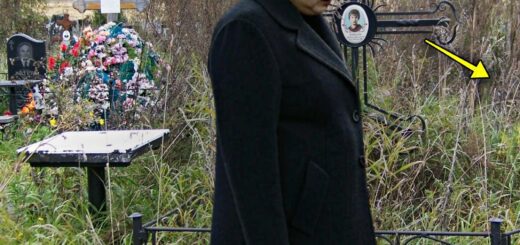Husband abandoned his disabled wife in the forest, unaware that a mysterious man was watching everything
Emma glanced at Tom, who gave her a subtle nod.
“I want to come home,” she said, pushing the words like stones through her throat. “But I need to know it’ll be okay.”
“It will be,” he said quickly. “It will. Just tell me where you are.”
“And Vanessa, will she still be around?”
Another pause, longer this time. “She’s just helping, that’s all.”
“I don’t want trouble,” Emma said, quieter now. “I just want peace.”
Michael exhaled. “Then stop digging. Don’t go to the police. Don’t try to turn this into something it’s not. We can fix this, but only if you don’t ruin us both.”
Tom ended the recording with a click. “That’s enough.”
Emma ended the call and stared at the phone.
Chris’s voice was calm. “You just got him admitting to the abandonment, to the gaslighting, to the presence of the other woman. That’s gold.”
Tom smiled. “This will play very differently in front of a judge than it did in your living room.”
For the rest of the day, they compiled everything—the recordings, the financial records, the emails, the messages Michael had sent in the days since. Emma’s case was no longer a hunch; it was a map of intent, layered, cold, and deliberate.
Then Rachel joined the call. An attorney friend of Tom’s, she had worked on abuse cases for nearly twenty years. Her tone was clinical but not detached.
“This isn’t just coercive control,” she said. “This is a campaign. He erased your independence methodically. We can file for emergency protection orders and freeze assets within twenty-four hours.”
Emma felt breathless. “That fast?”
“Once we file the affidavit, yes. But there’s one thing we need to decide now: Do you want to remain in the background while this unfolds, or do you want to go public?”
Emma hesitated.
“I know it’s a lot,” Rachel said gently. “But a proactive public statement on your terms can cut his defense off at the knees, especially if he’s trying to push a narrative about your mental state.”
Chris’s eyes met hers. “You don’t owe anyone your story, Emma. But if you tell it, tell it your way.”
Emma looked around the room—her chair, her files, her future stacked in neat rows beside a man who never stopped believing she had one.
“No more shadows,” she said. “If he wants a story, I’ll give him the real one.”
That night, they filmed it. Just Emma in the cabin’s firelight. A simple camera, a single take.
“My name is Emma Johnson,” she said, voice calm, deliberate. “Three nights ago, I was abandoned in the Colorado wilderness by my husband, Michael Johnson. I was left without my wheelchair, without my medication, and without a way to call for help. This is not a misunderstanding. It is not the result of confusion. It was a decision made carefully and over time by someone who viewed my disability as a burden, not a part of me. Someone who sought to erase me when I no longer fit his life. But I survived, and I’m not going away. This is my voice, my proof, my life, and I’m taking it back.”
The video went live just after sunrise. It wasn’t posted to social media directly but uploaded quietly through a secured legal channel, then distributed by Emma’s attorney to the right places—media outlets with reputations for integrity, reporters who understood the difference between scandal and story.
Within two hours, it was trending. By noon, the silence Michael had relied on to build his fiction began to collapse. Local news stations that had once aired clips of his tearful pleas were now running Emma’s video in full. National outlets picked it up soon after, embedding side-by-side comparisons of Michael’s narrative versus hers.
A few podcasts dedicated to abuse advocacy called it “one of the clearest cases of coercive control we’ve seen break into the public sphere.”..
























